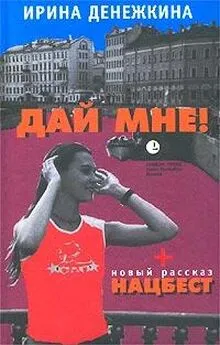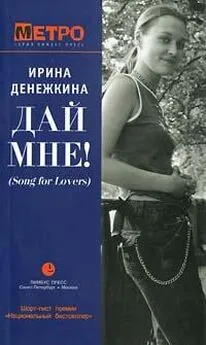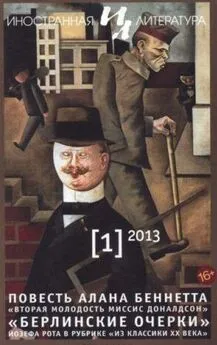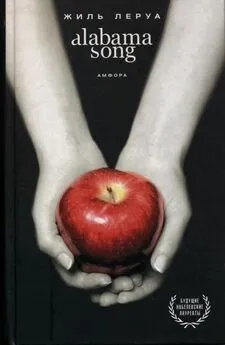Toni Morrison - Song of Solomon
- Название:Song of Solomon
- Автор:
- Жанр:
- Издательство:неизвестно
- Год:неизвестен
- ISBN:нет данных
- Рейтинг:
- Избранное:Добавить в избранное
-
Отзывы:
-
Ваша оценка:
Toni Morrison - Song of Solomon краткое содержание
Song of Solomon - читать онлайн бесплатно полную версию (весь текст целиком)
Интервал:
Закладка:
He had half expected his friend to laugh at him, to refuse with some biting comment that would remind Milkman that Guitar was a mystery man now, a man with blood-deep responsibilities. But when he watched Guitar’s face as he described what could be had almost for the asking, he knew right away he hadn’t guessed wrong. Maybe the professional assassin had had enough, or had changed his mind. Had he…? “Did you…?” As he listened to him go over each detail of meals, clothes, tombstones, he wondered if Guitar simply could not resist the lure of something he had never had—money.
Guitar smiled at the sun, and talked lovingly of televisions, and brass beds, and week-long card games, but his mind was on the wonders of TNT.
By the time they’d exhausted their imaginative spending, it was almost noon and they were back on the edge of Southside. They picked up where they’d left off in the discussion of the scheme. Guitar was ready now; Milkman was still cautious. Too cautious for Guitar.
“I don’t understand you. You come running after me with a dynamite proposition, and for three days we talk about it, the best news I’ve had since pussy, but when we get down to business, you come up with some shit about how it can’t be done. You shucking me or what?”
“What would I be shucking for? I didn’t have to tell you about it.”
“I don’t know. I don’t even know why you doing it. You know about me—you can guess why I’m in it. But money ain’t never been what you needed or couldn’t get.”
Milkman ignored the reference to why Guitar was “in it,” and said as calmly as he could, “I need it to get away. I told you, man. I got to get out of here. Be on my own.”
“On your own? With a million-dollar wallet, you call that on your own?”
“Fuck you. What difference does it make why I want it?”
“Cause I’m not sure you do want it. At least not bad enough to go ahead and cop.”
“I just want it right. No hassles. No…You know, burglary is a serious crime. I don’t want to end up in—”
“What burglary? This ain’t no burglary. This is Pilate.”
“So?”
“So! They’re your people.”
“They re still people, and people scream.”
“What’s the worst? What’s the worst thing can happen? We bust in, right? Suppose all three of them are there. They’re women. What can they do? Whip us?”
“Maybe.”
“Come on! Who? Hagar? Right up in your face she blows it. Pilate? She loves you, boy. She wouldn’t touch you.”
“You believe that?”
“Yeah, I believe it! Look. You got qualms, tell me about them. Because you related? Your daddy’s more related than you are, and it’s his idea.”
“It’s not that.”
“Then what?”
“They’re crazy, Guitar. Nobody knows what they’ll do; they don’t even know.”
“I know they’re crazy. Anybody live like they do, selling fifty-cent wine and peeing in a bucket, with one million dollars hanging over their nappy heads, has to be. You scared of craziness? If you are, you’re crazy.”
“I don’t want to be caught, that’s all. I don’t want to do time. I want to plan it so neither one happens. How come that’s too much to ask? To plan.”
“It don’t look like planning. Looks like stalling.”
“It is planning. Planning how to get them out the house. How to get us in the house. How to cut that sack off the ceiling and then get back out the house and on down the street. And it’s hard to plan with them. They’re not regular. They don’t have regular habits. And then there’s the wineheads. One of them liable to drop in any old time. They’re not clock people, Guitar. I don’t believe Pilate knows how to tell time except by the sun.”
“They sleep at night.”
“Anybody sleep can wake up.”
“Anybody woke up can be knocked down.”
“I don’t want to knock nobody down. I want them gone when we hit.”
“And what’s gonna make them leave?”
Milkman shook his head. “An earthquake, maybe.”
“Then let’s make an earthquake.”
“How?”
“Set the house on fire. Put a skunk in there. A bear. Something. Anything.”
“Be serious, man.”
“I’m trying, baby. I’m trying. Don’t they go nowhere?”
“All together?”
“All together.”
Milkman shrugged. “Funerals. They go to funerals. And circuses.”
“Oh, man! We have to wait for somebody to die? Or for Ringling Brothers to come to town?”
“I’m trying to figure it out is all. At the moment we don’t have a chance.”
“Well, if a man don’t have a chance, then he has to take a chance!”
“Be reasonable.”
“Reasonable? You can’t get no pot of gold being reasonable. Can’t nobody get no gold being reasonable. You have to be unreasonable. How come you don’t know that?”
“Listen to me….”
“I just quit listening. You listen! You got a life? Live it! Live the motherfuckin life! Live it!”
Milkman’s eyes opened wide. He tried hard not to swallow, but the clarion call in Guitar’s voice filled his mouth with salt. The same salt that lay in the bottom of the sea and in the sweat of a horse’s neck. A taste so powerful and necessary that stallions galloped miles and days for it. It was new, it was delicious, and it was his own. All the tentativeness, doubt, and inauthenticity that plagued him slithered away without a trace, a sound.
Now he knew what his hesitation had been all about. It was not to give an unnatural complexity to a simple job; nor was it to keep Guitar on hold. He had simply not believed in it before. When his father told him that long story, it really seemed like Jack and the Beanstalk … some fairy tale mess. He hadn’t believed it was really there, or really gold, or that he could really have it just for the taking. It was too simple. But Guitar believed it, gave it a crisp concreteness, and what’s more, made it into an act, an important, real, and daring thing to do. He felt a self inside himself emerge, a clean-lined definite self. A self that could join the chorus at Railroad Tommy’s with more than laughter. He could tell this. The only other real confrontation he’d had was hitting his father, but that wasn’t the kind of story that stirred the glitter up in the eyes of the old men in Tommy’s.
Milkman didn’t think through any of this clearly. He only tasted the salt and heard the hunter’s horn in Guitar’s voice.
“Tomorrow,” he said. “Tomorrow night.”
“What time?”
“One-thirty. I’ll pick you up.”
“Beautiful.”
Far down the road, a long way from Milkman and Guitar, the peacock spread its tail.
On autumn nights, in some parts of the city, the wind from the lake brings a sweetish smell to shore. An odor like crystallized ginger, or sweet iced tea with a dark clove floating in it. There is no explanation for the smell either, since the lake, on September 19, 1963, was so full of mill refuse and the chemical wastes of a plastics manufacturer that the hair of the willows that stood near the shore was thin and pale. Carp floated belly up onto the beach, and the doctors at Mercy knew, but did not announce, that ear infections were a certainty for those who swam in those waters.
Yet there was this heavy spice-sweet smell that made you think of the East and striped tents and the sha-sha-sha of leg bracelets. The people who lived near the lake hadn’t noticed the smell for a long time now because when air conditioners came, they shut their windows and slept a light surface sleep under the motor’s drone.
So the ginger sugar blew unnoticed through the streets, around the trees, over roofs, until, thinned out and weakened a little, it reached Southside. There, where some houses didn’t even have screens, let alone air conditioners, the windows were thrown wide open to whatever the night had to offer. And there the ginger smell was sharp, sharp enough to distort dreams and make the sleeper believe the things he hungered for were right at hand. To the Southside residents who were awake on such nights, it gave all their thoughts and activity a quality of being both intimate and far away. The two men standing near the pines on Darling Street—right near the brown house where wine drinkers went—could smell the air, but they didn’t think of ginger. Each thought it was the way freedom smelled, or justice, or luxury, or vengeance.
Breathing the air that could have come straight from a marketplace in Accra, they stood for what seemed to them a very long time. One leaned against a tree, his foot hovering off the ground. Finally one touched the elbow of the other and they both moved toward an open window. With no trouble at all, they entered. Although they had stood deliberately in the dark of the pine trees, they were unprepared for the deeper darkness that met them there in that room. Neither had seen that kind of blackness, not even behind their own eyelids. More unsettling than the darkness, however, was the fact that in contrast to the heat outside (the slumbering ginger-laden heat that had people wiping sweat from their neck folds), it was as cold as ice in Pilate’s house.
Suddenly the moon came out and shone like a flashlight right into the room. They both saw it at the same time. It hung heavy, hung green like the green of Easter eggs left too long in the dye. And like Easter, it promised everything: the Risen Son and the heart’s lone desire. Complete power, total freedom, and perfect justice. Guitar knelt down before it and wove his fingers together into a footstep. Milkman hoisted himself up, one hand on Guitar’s head, and shifted himself until he sat on Guitar’s shoulders. Slowly Guitar stood up. Milkman felt upward along the sack until he found its neck. He thought the rope would have to be cut, and was annoyed to find the sack hung by wire instead.
He hoped the knife would be enough, because they hadn’t figured on wire and had brought neither pincers nor a wire cutter. The sound of the grating knife filled the room. No one, he thought, could sleep through that. At last some few strands broke and it was only a moment before the entire blackness was severed. They’d figured on the weight of the sack being enough to tumble them the minute it was cut free, and planned that at a whispered signal, Guitar would bend his knees and sink down so Milkman’s feet would hit the floor almost immediately. But there was no need for this graceful footwork; the bag was much lighter than they had anticipated, and Milkman made it down quite easily. As soon as they both regained balance, there was a huge airy sigh that each one believed was made by the other. Milkman handed his knife to Guitar, who closed it and tucked it in his back pocket. There was the deep sigh again and an even more piercing chill. Holding the sack by its neck and its bottom, Milkman followed Guitar to the window. Once Guitar had cleared the sill, he reached back to help Milkman over. The moonlight was playing tricks on him, for he thought he saw the figure of a man standing right behind his friend. Enveloped by the heat they’d left a few minutes earlier, they walked swiftly away from the house and out onto the road.
At another open window on the same side of the house, the one next to the sink where Hagar washed her hair and where Reba put pintos to soak, a woman’s face appeared. “What the devil they want that for?” she wondered. Then she picked at the window sill until she had a splinter of wood and put it in her mouth.
Chapter 9
Amanuensis. That was the word she chose, and since it was straight out of the nineteenth century, her mother approved, relishing the blank stares she received when she told her lady guests what position her daughter had acquired with the State Poet Laureate. “She’s Michael-Mary Graham’s amanuensis.” The rickety Latin word made the work her daughter did (she, after all, wasn’t required to work) sound intricate, demanding, and totally in keeping with her education. And the women didn’t dare ask for further details (they tried to remember its sound, but still couldn’t find it in the dictionary), for they were suitably impressed by the name of Michael-Mary Graham. It was a lie, of course, even as the simpler word “secretary” was a lie, but Ruth repeated it with confidence because she believed it was true. She did not know then, and never found out, that Corinthians was Miss Graham’s maid.
Читать дальшеИнтервал:
Закладка:








